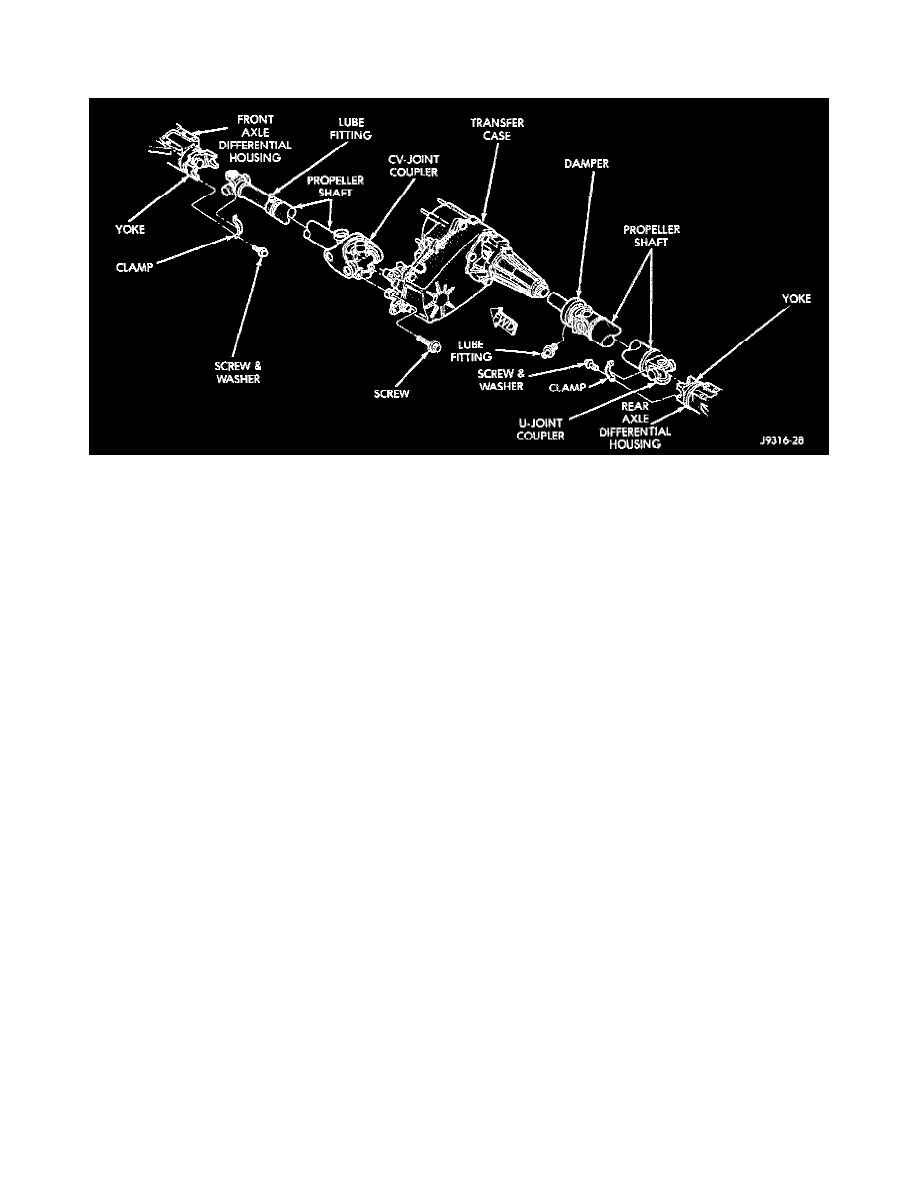Dakota R/T 2WD V8-5.9L VIN Z LDC (1999)

Drive/Propeller Shaft: Description and Operation
General Information
Fig. 1
The propeller shaft transmits power from one point to another in a smooth and continuous action. The shaft is designed to send torque through an
angle from the transmission (transfer case on 4WD vehicles) to the axle.
The propeller shaft must operate through constantly changing relative angles between the transmission and axle. It must also be capable of changing
length while transmitting torque. The axle rides suspended by springs in a floating motion. This means the propeller shaft must be able to contract,
expand and change operating angles when going over various road surfaces. This is accomplished through universal joints, which permit the propeller
shaft to operate at different angles. The slip joints (or yokes) permit contraction or expansion.
Tubular propeller shafts are balanced by the manufacturer with weights spot welded to the tube.
The propeller shaft is designed and built with the yoke lugs in line with each other. This is called phasing. This design produces the smoothest running
condition. An out of phase shaft can cause a vibration.
Before undercoating a vehicle, the propeller shaft and the U-joints should be removed if possible. If removal is not possible, make sure that the
propeller shaft and U-joints are fully covered. This will prevent the undercoating from causing an out of balance condition and vibration.
CAUTION: Use exact replacement parts for attaching the propeller shafts. This will ensure safe operation. The specified torque must always be
applied when tightening the fasteners.
